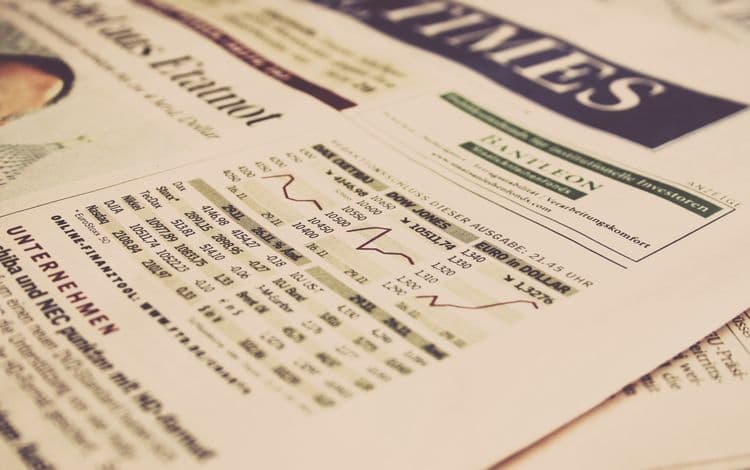How is the US economy going to bounce back and how long will it take? These are questions on the minds of many Americans as they contemplate how to forge ahead in the wake of a global pandemic. Recently, Federal Reserve Chairman Jerome Powell offered his take on these very questions, and sadly for most of the country, we may have a long road ahead in terms of economic recovery than initially anticipated. According to Powell, he would be surprised if we reached anything resembling a "normal" economic period before the end of next year. Unfortunately yes, the fallout from the pandemic could cause an economic ripple effect that extends until late 2021.
On Sunday, Powell was interviewed on 60 Minutes. He expressed deep concern about the tremendously trying time we are facing and will no doubt continue to face in the months to come. In his assessment, it is going to take a great deal of work and a fair amount of time for the country to get back to where it was—if that is even possible. On a positive note, the Fed chairman did suggest that ultimately, he holds an optimistic outlook for the nation. States are reopening, people are getting back to work. Those astronomical unemployment numbers will start to go back down. And so, while Powell, reemphasized the fact that it will "take a while," he does see the US economy coming out of this eventually.
The Harrowing Effects of a Global Pandemic
Beyond the health factors, the coronavirus has caused havoc in terms of not just the US economy, but economies worldwide. With a stay at home orders and lockdowns, businesses and even entire industries were forced to close up shop. Unemployment numbers (currently around 36 million/) reached the Great Depression-era levels. And while states have begun the reopening process, for some businesses it may not be enough. Especially with capacity limitations, social distancing guidelines, and other such restrictions in place, smaller companies across the country are still feeling the pain of the pandemic. PPP loans have helped some make it through, but in Powell's view, the government is going to have to do even more to buoy those businesses and industries that were battered by the coronavirus. Congress will need to somehow come together and devise a bill that will deliver the aid necessary to stimulate an economic rebound.
Some of the more staggering statistics that the US is currently having to contend with:
- In eleven states over a quarter of those who had a job back in February, are now without work.
- The DOW had its biggest quarterly drop in the first 3 months of the year since 1987.
- The economy was expected to grow by over 2% this year, instead, it shrank by almost 5%.
- Consumer spending dropped by nearly 8% during the first three months of the year.
- The travel and hospitality industries have suffered immensely. Given travel bans worldwide, recovery in these industries will be exceedingly slow.
And of course, it goes beyond just economic/financial figures and industry-wide slowdowns and shutdowns. To date, over 1.4 million in the US alone have tested positive, with over 90k deaths thus far.
During his 60 Minutes interview, the Fed chief outlined what he saw as necessary for the country to get back on track from an economic perspective. For one, a vaccine will need to be found and distributed. Many suggest that this can take as long as 12 to 18 months. Not to mention, no one knows for certain whether or not a vaccine would even work given how the virus has behaved. Powell did mention that he foresees the economy starting the recovery process during the second half of the year, barring a second wave of COVID-19. People have to exercise patience; they have to proceed with caution and make smart choices regarding reopenings and social distancing guidelines and practices.
Just last week in an interview, Powell had warned about the coronavirus fallout, stating that such was "without modern precedent." He also urged Congress to come up with a new relief program to stem unemployment levels and help bail out those who truly need it.
Additionally, Powell has expressed his concern regarding the gross domestic product as he expects to see it shrink quite significantly in the second quarter of 2020 before making a slow recovery in the third and fourth quarters. As far as how high the numbers would be in terms of the loss in GDP, Powell estimates we could see it in the twenties or thirties.
The Fed has cut its benchmark rate to near zero to help stimulate a flagging economy; when asked, however, Powell has said that they will not go to negative rates in light of the crisis. The Fed Reserve chair insists that he will do all he can on his end to help stabilize a turbulent economy, but ultimately, according to Powell, the bulk of help is going to have come from Congress. While yes, it may be costly, if it helps the US in terms of bouncing back strongly and positively, then certainly, it is well worth it.
At First Union Lending, we are doing all that we can to help our small business clients survive during this challenging time. We have a variety of loan programs available right now—from short term loans, to bridge loans, to lines of credit and also merchant cash advances, we can get your company the money it needs to make it through in the wake of this pandemic. We have also been helping clients navigate the PPP process as there are still funds available. If your business could use some additional capital, please don't hesitate to contact us! We can get through this together.
